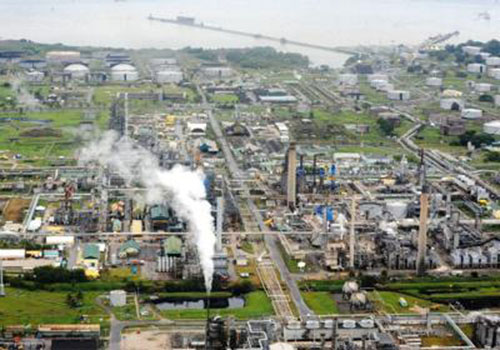(Trinidad Express) History was created on the global oil market yesterday when the price of the US benchmark, West Texas Intermediate, plunged into negative territory for the first time ever.
At 2.30 p.m. yesterday in New York, where the WTI benchmark is traded, the futures price of American crude for sale in May was negative US$35.20 a barrel, a decline of close to 300 per cent, meaning that a trader selling the crude today would have had to pay the buyer to accept that cargo.
Analysts attributed the collapse in the WTI oil price to the fact that the May contract for delivery of the WTI is due to expire tomorrow. WTI crude oil for delivery in June, fell 16.5 per cent to US$20.90 per barrel. And Brent crude, the international standard, was down by 9.6 per cent, or US$2.46 to US$25.62 per barrel. The negative price for WTI, therefore, is expected to be a one-off event.
But apart from the technical issue of the expiration of the May futures contract, the collapse of the WTI price also speaks to an oil market in which supply of crude exceeds demand for the commodity as a result of the global slowdown in transportation caused by the COVID-19 pandemic. That’s despite the agreement by most of the oil producers in the world, including T&T, to cut 9.6 million barrels of oil per day from global oil production, which was at about 100 million barrels before the COVID-19 lockdowns.
What impact will the negative price of crude have on T&T?
In January, T&T produced a total of 57,395 barrels of oil, all of which was exported due to the closure of the Petrotrin refinery in November 2018. Reduced crude oil prices may eventually trigger a reduction in the price of gasoline at the pump.
In terms of revenues to the Govern-ment, for about 20 years now, a majority of T&T’s energy revenues have come from the production and sale of natural gas. The price of that commodity, based on the Henry Hub benchmark, increased by 9.5 per cent to US$1.93 per mmbtu.
Heritage Petroleum Responds to Downturn in Global Oil and Gas Market
This has been an unprecedented time for Trinidad and Tobago, the world and indeed the global oil industry. Heritage Petroleum Company Limited has not been insulated from all that is occurring. The precipitous drop in the world’s demand for oil and gas and the accompanying slow- down of economic activity due to COVID-19 also came with a simultaneous increase in supply as a result of the recent price war between Russia and Saudi Arabia.
These issues have led to a significant decline in world benchmark crude oil and gas prices. Even after recent negotiated cuts in oil production from OPEC + the oil price has remained stubbornly low. Heritage is classified as a ‘water borne crude’ and is linked to Brent and normally trades slightly below that benchmark.
The Board of Directors and Leadership at Heritage recognizes that this low oil price environment will continue for some time (lower for longer) and has implemented strategies to deal with this scenario.
This multi-faceted approach includes:
1. Heritage has re-evaluated activity for the rest of 2020 in detail and has decided on risk-based reductions through optimization of activity and project portfolios. We have also partnered with our Energy Service Companies to reduce their rates aggressively. These measures have resulted in a capital expenditure reduction of 49% and an operating expenditure reduction of 21% in the revised Heritage budget which will be constantly reviewed.
2. The identification and implementation of additional cash-generating options such as the sale of obsolete assets including scrap iron and supply boats which we expect will yield significant revenue.
3. A freeze on recruitment, save for critical jobs.
4. Discussions and negotiations with financial institutions on financing arrangements and loan repayments arising out of legacy Petrotrin debt obligations.
5. As per our 2020 plan, Heritage grew production to approximately 41,000 barrels of oil per day as we completed workovers and installed gas lift on offshore wells. Surface infrastructural activity including pipeline repair and replacement of motors added to production volumes as well. This means that Heritage now produces approximately 1.2 million barrels of oil per month. As the oil price is expected to be in the low teens in this quarter, we are pursuing a strategy of storage of oil production which will be sold as the oil market improves. At present, Heritage’s storage capacity is approximately 3.5 million barrels which will allow the company to store approximately 2.5 months of production as some storage is also needed for settling and treating of the production to attain the correct salable quality.






